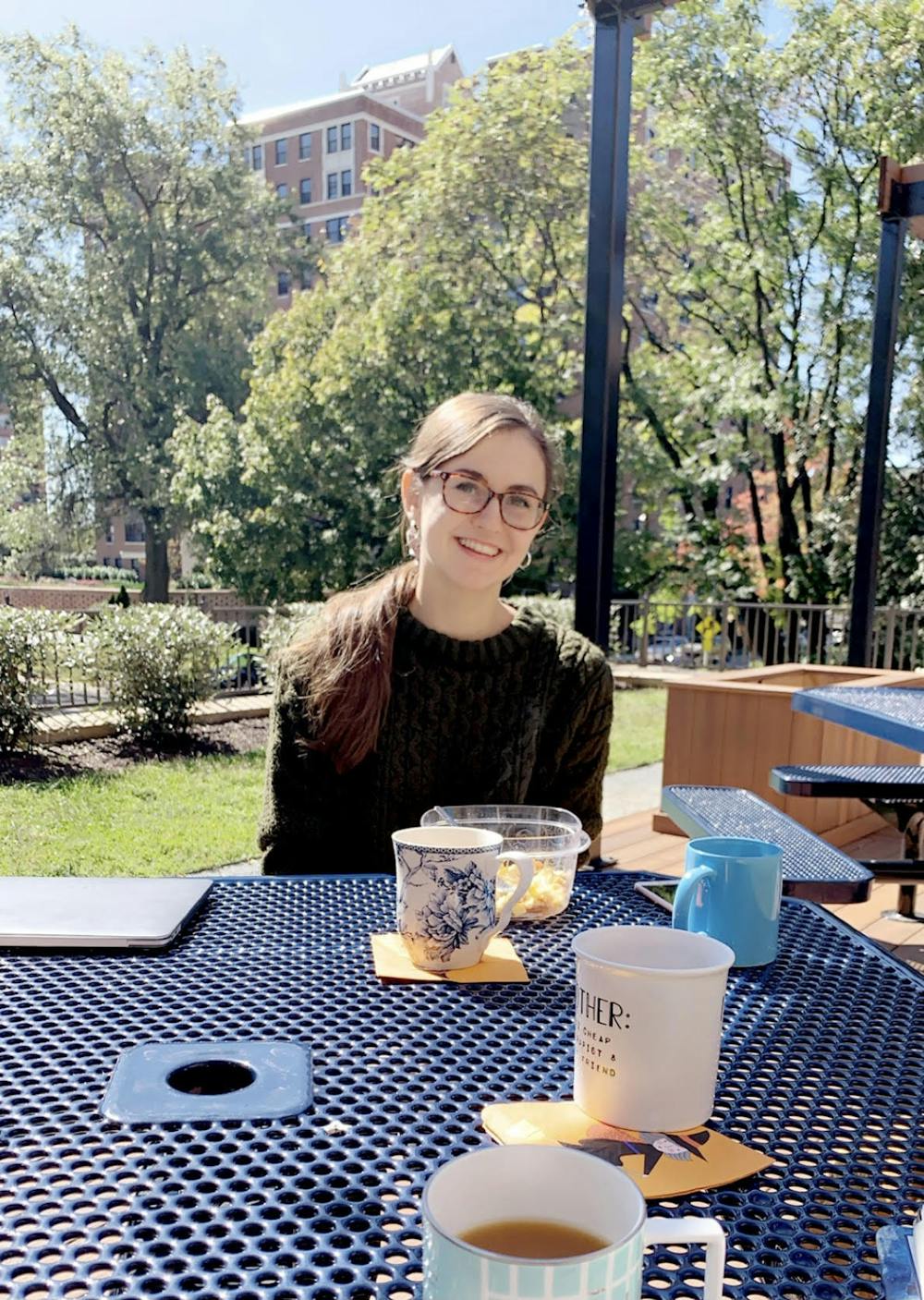
On Tuesday I deleted all of my social media. There were many factors behind this sudden decision, but the overarching one was that I felt like I had to pretend to be something I wasn’t always: I had to pretend to be okay.
Although this might not be the healthiest thing, I generally keep a pretty good wall up around my emotions, which leads most people to believe that I’m totally fine even when I’m hurting deep inside. My fake and real happy faces are almost identical, and I don’t usually express my emotions verbally, other than to a handful of people.
Being on social media — primarily on Snapchat and Instagram — made me feel like I had to smile in pictures and keep small-talk conversations going when all I wanted to do was crawl under the covers and never leave. Ignoring people’s messages, or “leaving them on read,” was not an option either, since that could be misconstrued as being passive-aggressive. In reality, I simply did not have the mental capacity to have any sort of social interaction with anyone.
My primary concern with deleting most of the easiest ways to keep in touch with people was that I would have no human contact at all outside of my roommate and parents. Nevertheless, just over a week ago I deleted Instagram and Snapchat off my phone and logged out of my Facebook and Twitter accounts. For two days I felt total peace and could truly focus on myself without interruption or pressure from anyone else to act any way that I wasn’t actually feeling, even for a second.
On the third day, as we neared the weekend, I needed to log into Instagram to check on some work-related things and into Snapchat to contact someone urgently whose phone number I did not have. Upon downloading the apps, I immediately got sucked back into the toxicity of it all. I tapped through all of my Snapchats and scrolled through Instagram for almost 15 minutes before I felt my head tightening and breathing getting faster. The anxiety blanketed me, and I quickly put my phone away.
In that 15- to 20-minute period, it felt like more information flew my way than in the entire two days prior. I was completely overwhelmed. Social media is multifaceted; not only is there endless content to scroll through, but there are personal notifications, comments, likes, stories, tags and the cherry-picked best moments of the lives of everyone you’ve ever known. Almost instantaneously, I felt unproductive, jealous, hurt, ugly and about a million more negative things. Everything just seemed so shiny; everyone appeared so funny and beautiful. All my incessant scrolling did was make me feel completely and utterly alone in my despair.
Of course, this is not even close to the truth. Everyone is struggling with their own unique situation and set of uncertainty and fear. However, for the most part, people don’t share that part of their life with the world, so as it’s so often said: We compare our behind-the-scenes to their highlight reels. Having such content can be seriously detrimental to your mental health, especially if you’re already not in the right headspace for it.
And as it turns out, if people really care and want to get in touch with you, they will. Above all else this week of social media cleansing has really been telling of that fact. From people texting to check in, to others FaceTiming, to one person (within my quarantine bubble) even showing up at my door, this week has squashed my fear of having no human contact or no one caring beyond a doubt. These interactions also felt more genuine — less pressured in many ways — and for once I was actually honest about how I was feeling. It felt really wonderful to lean, sometimes physically, on people who care about my wellbeing beyond the confines of a few mobile apps.
This one week has also changed my online behavior, perhaps permanently. I keep my Snapchat and Instagram downloaded but logged out most of the time, and I’ve muted chats that make me anxious and customized my notifications so that I’m only receiving communication that I want to see. Most social media platforms allow you to remove followers or deliver notifications from certain groups or people quietly, and I finally understand the advantages of doing that. In fact, I highly recommend it. While I’ve never been one to calculate how long I take to respond to someone, I don’t feel obligated to respond at all to things or people I don’t want to anymore.
This whole experience has been incredibly liberating. So, if you’re ever feeling a little heavy, consider turning off your phone or deleting some apps — I promise you won’t regret it.
Saniya Ramchandani is a senior studying physics from Singapore. Her column is a reflective narrative that chronicles her experiences navigating various aspects of college life.





